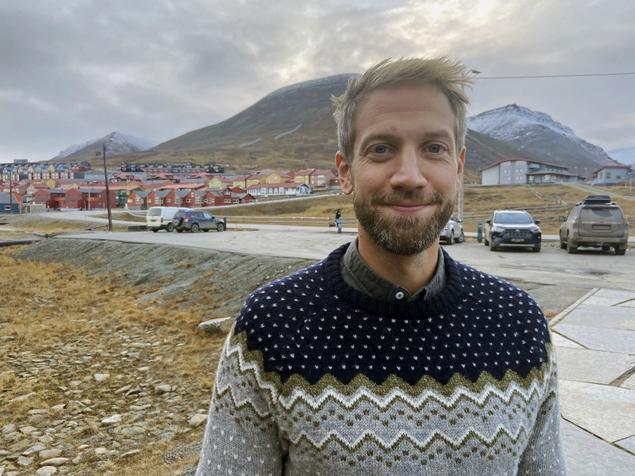Exploring Geopolitics in the Arctic: Deterrence, Dependency, and Dialogue

Iver B. Neumann, Andreas Østhagen, and their colleagues at FNI are embarking on a new research project on three dimensions that shed light on the nature of Arctic politics: deterrence, dependency, and dialogue.
For years, the Arctic has epitomized stability and collaboration, despite geopolitical tensions among major powers with vested interests in the region. However, the tranquil Arctic waters have recently been stirred by unrest stemming primarily from conflicts in other parts of the world that reverberate across the area.
Security Dynamics in the North after 2022
Understanding the past can provide valuable insights into the future, also with the altered circumstances in the North. Over the next three years, a consortium of the world's foremost Arctic experts will work to ensure that Norway remains at the forefront of the Arctic security discourse. Spearheaded by IR researcher and FNI Director Iver B. Neumann, the Arctic3D project is the brainchild of FNI Senior Researcher Andreas Østhagen.
‘Our goal is twofold: to understand why the northern regions exhibited such remarkable stability and minimal conflict until 2022, and to ascertain the repercussions of Russia's recent incursion into Ukraine’, Østhagen explains. ‘In the final phase of the project, we will employ scenario-based analysis to explore potential trajectories in the Arctic.’
The Arctic Risk project will feature exploration of Arctic security dynamics through three lenses: deterrence, dependency, and dialogue (3D), focusing on the Barents and Bering Seas.
Addressing Conflict Risks through Multiple Perspectives
Østhagen considers the FNI as uniquely equipped for this task, thanks to its holistic approach to security policy, encompassing both hard and soft power interactions. ‘We reject the idea that military deterrence, economic interdependence, or dialogue and cooperation in isolation, hold the key to understanding stability in the Arctic. We aim to examine multiple dimensions, to shed light on the factors that have contributed to the region's well-established tranquillity.’
Here he underscores the FNI's position as the leading research institution in Norway dedicated to the northern regions and international politics, also highlighting its good relations with influential stakeholders and research partners.
Headed by Iver B. Neumann, the ‘Unpacking Arctic Security Dynamics: A 3D Approach to Geopolitics in the Barents and Bearing Seas’ (Arctic3D) project features a team of top-level FNI researchers, including Andreas Østhagen, Anne-Kristin Jørgensen, Svein Vigeland Rottem, Arild Moe, Ida Hvinden, Serafima Andreeva and Gabriella Bolstad.
The project has now secured a 550 000 USD grant from the Research Council of Norway. Project activities will involve collaboration with such highly reputed institutions as the University of Copenhagen, the Finnish Institute of International Affairs, the Wilson Center in Washington DC, Harvard University, Nord University, the Norwegian University of Life Sciences (NMBU), and Canada’s McGill University.
